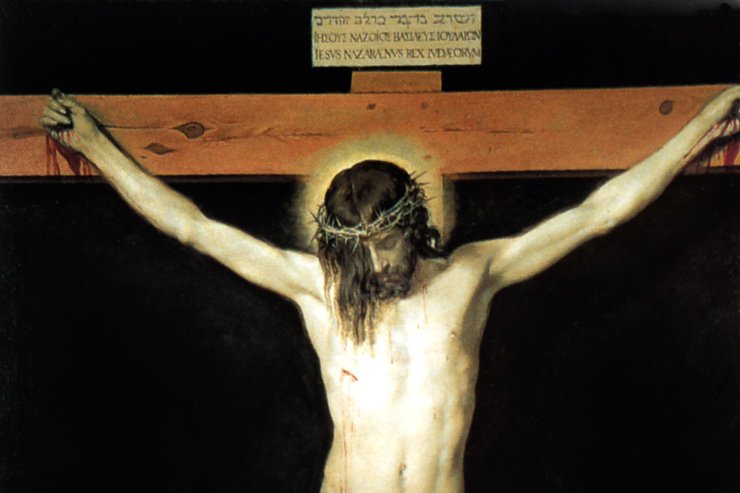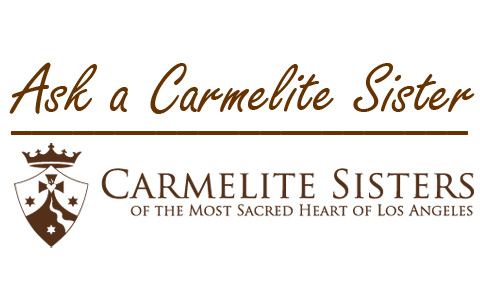This week, the Church in the United States is in the midst of the annual Fortnight for Freedom. The bishops established the Fortnight in 2012 to highlight the need to defend religious liberty. It is a two-week period of prayer, fasting, and action. There are many feast days that fall in this two week period, including Sts. Thomas More and John Fisher, St. John the Baptist, and Sts. Peter and Paul. These men are natural intercessors for our intentions, as they stood for the truth against unjust rulers. But there’s another saint whose feast falls in the Fortnight whose story might be a little less well-known. As we continue to pray for religious freedom, the ability to allow our faith to impact our everyday lives, we turn to a saint who reminds us that the battle is most often won in the ordinary.
St. Josemaría Escrivá lived during a complex and turbulent time: the Spanish Civil War of the 1930s. It was a time of violent persecution of the Church, when thousands were killed simply because they were Catholic. Churches and convents were burned. Priests, religious, and lay Catholics were murdered because they wore a scapular, prayed a rosary, or went to Mass. It is estimated that one diocese in northern Spain lost eighty-five percent of their diocesan priests to martyrdom. Over a thousand Spanish martyrs from this time have been beatified or canonized.
In the midst of this, St. Josemaría Escrivá, a priest, was ministering to his flock. Hiding in attics and celebrating Mass in secret, Escriva was experiencing the very antithesis of religious liberty. And what was he preaching during this time?
The same thing he had preached in the years leading up to the war: find God in your ordinary work. Escriva was reminding the people that holiness was found not in great deeds, but in the humble performance of everyday tasks. All activity, when directed toward God, sanctifies us — whether it is as menial as washing dishes or as heroic as hiding a priest in your attic. If our actions are done in love — love for God, love for neighbor– they become much greater than routine tasks.
“Let me stress this point: it is in the simplicity of your ordinary work, in the monotonous details of each day, that you have to find the secret, which is hidden from so many, of something great and new: Love.”
He reminded them that holiness was accessible to all — God had given everyone a mission, and our responsibility was to fulfill it. “Do you really want to be a saint? Carry out the little duty of each moment: do what you ought and concentrate on what you are doing.”
For some, that means serving our country in the military or in public office. For others, it means raising children, a new generation of faithful Christians. It means serving God in our work but also in our recreation. He spoke of the apostolate of friendship, the apostolate of entertainment, and even the “apostolate of the dinner-table.” Every deed, every moment, was a chance to glorify God and preach His Word — not necessarily by using grand theological language, but with a Christian joy that is contagious.
With this simple plan, Escrivá set out to change the world. If every Christian did his duty, lived his life, followed God’s Will, and served his Father in Heaven with joy and peace and love, we could survive any persecution.
If we look at the complex situation of the Spanish Civil War, which is often badly simplified as a conflict between Republican/Communist forces and Nationalist/Socialist forces, we step back and ask, “Who won?” History books will say that Franco and the Nationalists won.
But ultimately, Josemaría Escrivá and the Gospel won. Governments come and go. Christ the King reigns eternal. Battles are fought, lives are lost, and history cruelly repeats itself. The greatest heroes are the saints, who achieve the greatest prize: eternal life.
At times, the odds we face appear insurmountable. What are we to do as Christians in the world today?
Josemaría Escrivá reminds us to get to work.
“It is difficult to make our mark through quiet work and the proper fulfilment of our duties as citizens, so that later we can demand our rights and place them in the service of the Church and of society. It is difficult… but it is very effective.”
Some Christians are called to be martyrs, as so many were during the Spanish Civil War. Others are called to survive persecution, as St. Josemaría Escrivá did.
But we are all called to be faithful.
“It is surprising how often, even in the name of freedom, many people fear and oppose Catholics being simply good Catholics” (St. Josemaría Escrivá).














